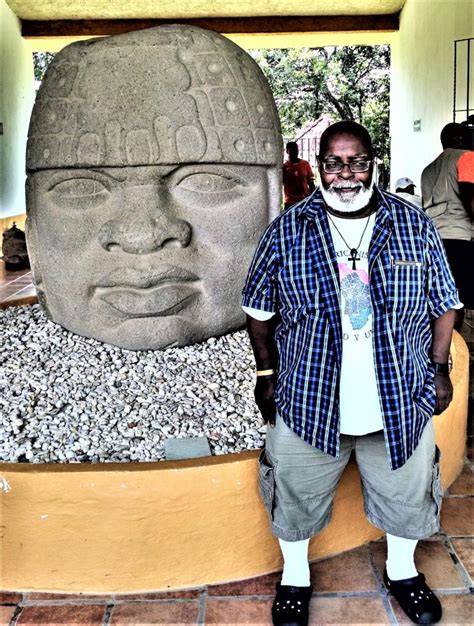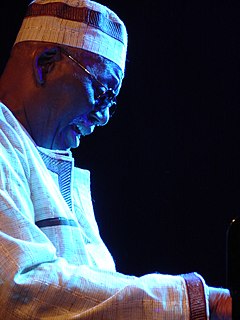A Quote by Ned Sublette
The general disinclination of Spain to accept slaves from Islamicized regions of Africa during the formative years of Hispano-American society had enormous consequences for the development of music in the New World.
Related Quotes
I spent my youth and my most formative years in Africa. I left Africa when I was about 20, 21, and when Mo says a great African, I was really moulded by my African experience, although I had the good fortune that by the time I was 24 I had studied and worked on three continents - Africa, the US, and Europe.
Changes in society are due chiefly to the development of the internal contradictions in society, that is, the contradiction between the productive forces and the relations of production, the contradiction between classes and the contradiction between the old and the new; it is the development of these contradictions that pushes society forward and gives the impetu6 for the suppression of the old society by the new.
Every culture, if its natural development is not too much affected by political restrictions, experiences a perpetual renewal of the formative urge, and out of that comes an ever growing diversity of creative activity. Every successful piece of work stirs the desire for greater perfection and deeper inspiration; each new form becomes the herald of new possibilities of development.
If we study history and anthropology we will find that all over the world the original people are Black people who migrated from Africa. This is confirmed by recent DNA studies. The only reason that we don't readily accept this is because we are indoctrinated to believe that Africa is the worst place that has ever been. If we had a more positive attitude about Africa we would run to it instead of running from it.
After I finished the Tycoons - on post-Civil War development - I realized how much I didn't know about the first half of the century, even though there had obviously been an enormous amount of development, so I read about and thought about that for a couple of years before I decided I was ready for a book.
My mom is American, so I was raised in her household in my formative years. But as I got older, my pops tried to keep me involved with the culture by telling me the stories of the conflict between Ethiopia and Eritrea, how he came to America, and about our family back home, because all that side of my family, my aunties, grandparents, is in Africa.
Our past as well as our future. It could have been completely destroyed when we were brought to the New World as slaves. They even took away our drums. And I don't want to talk about all those negative things going on. But its music is more present in our lives than ever. Blues, samba, calypso, reggae, jazz, salsa, Africa is everywhere.








































